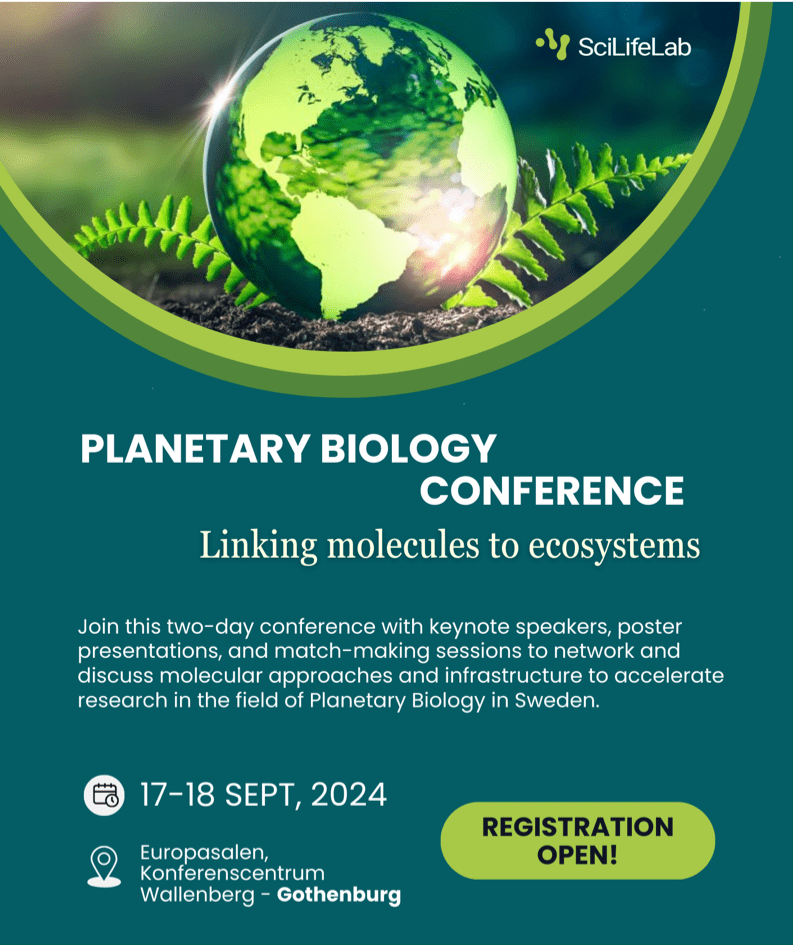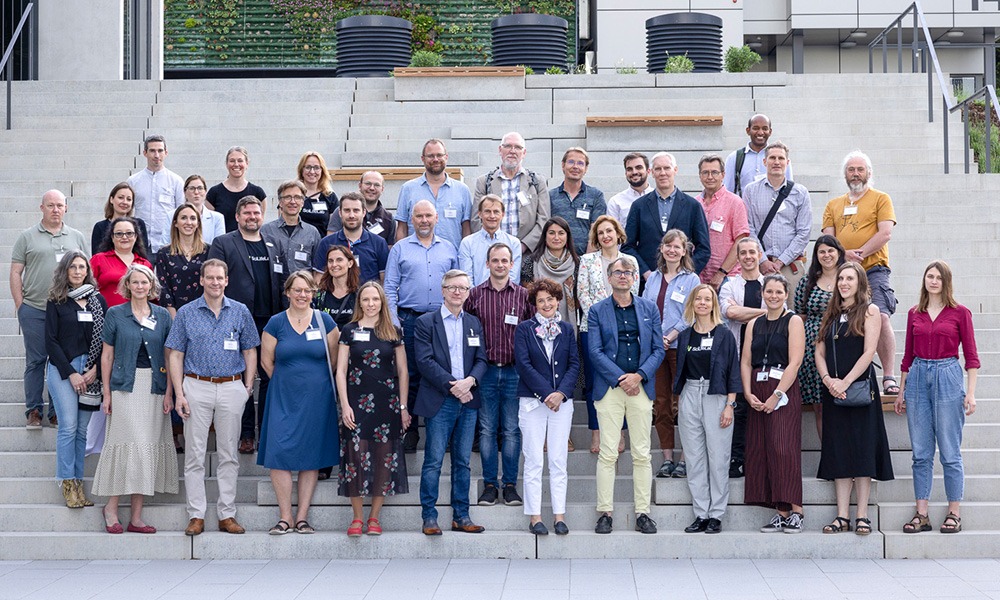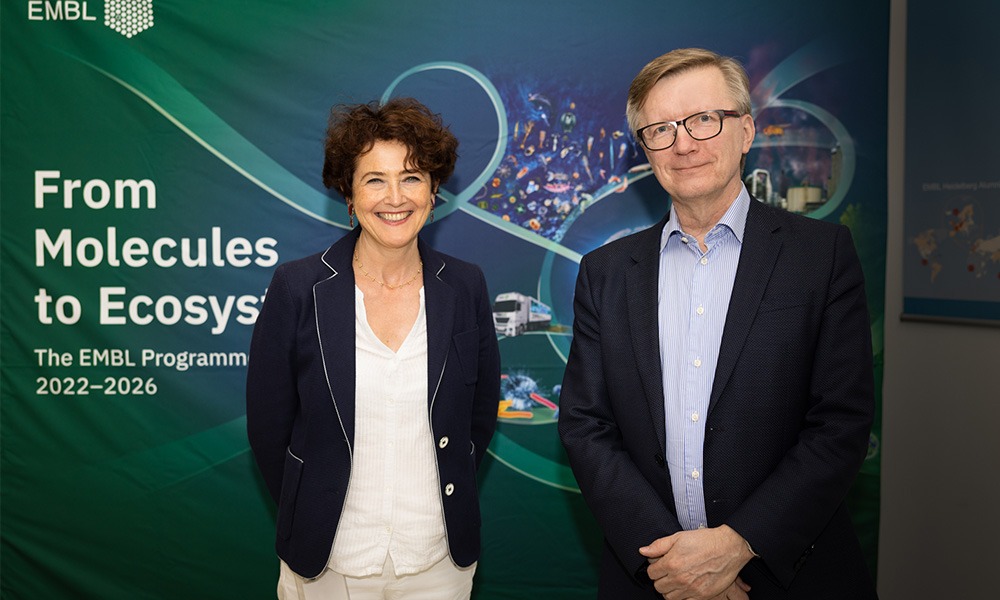Planetary Biology Capability
SciLifeLab’s Planetary Biology capability sprung out of a need for trans-disciplinary and coordinated approaches to study life on Earth, with a broad scope ranging from single molecules and cells to individual species, species communities, ecosystems, and their functioning on the planet. Simply speaking ”Life in environmental context”.
By combining SciLifeLab infrastructure, and the data-driven life science approach with a focus on planetary biology, the capability will create opportunities with a strong impact on ecosystem science. Taking advantage of SciLifeLab’s national research infrastructure, technology, and scientific excellence, techniques such as imaging, microscopy, genomics, bioinformatics, metabolomics, proteomics, and big data analysis, for non-biomedical research will be used to shed light on all aspects of life on our planet.
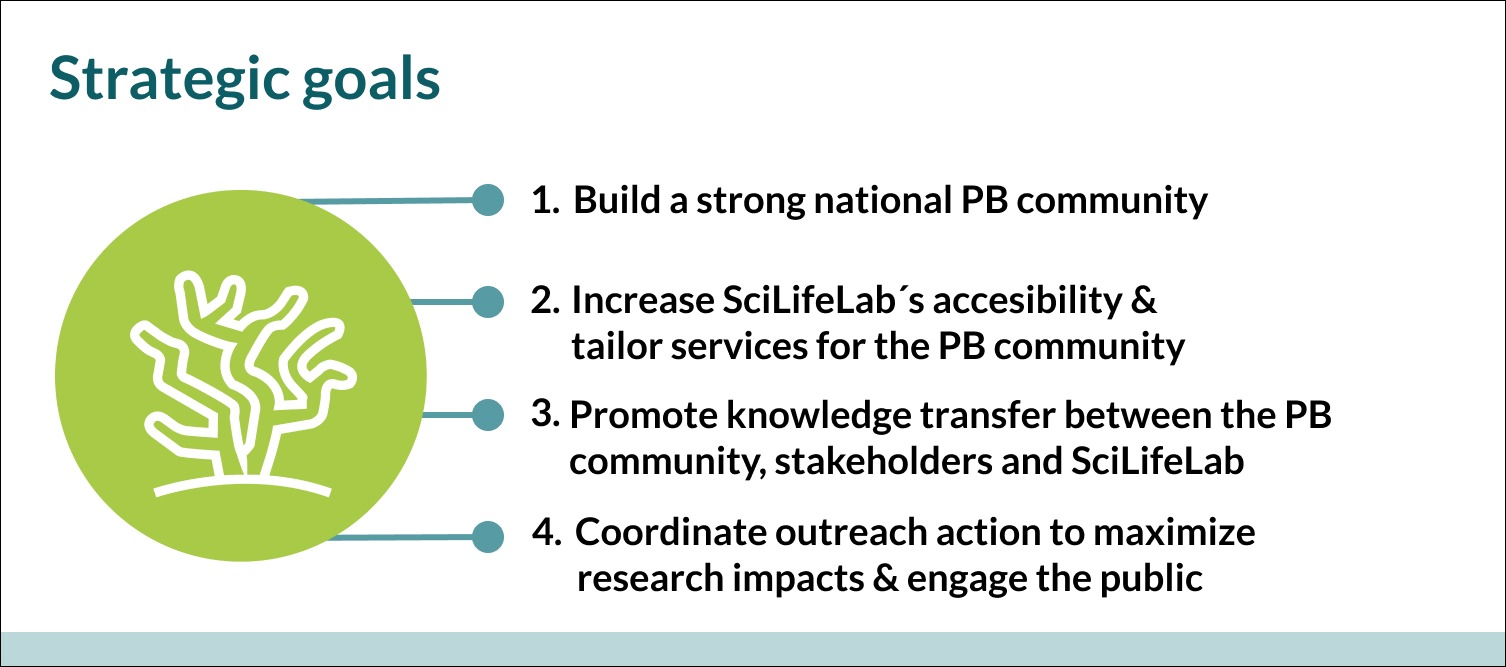

Planetary Biology concept
Research in molecular life sciences allows us to describe and understand the drivers and meaning of diversity: changes that are happening, the underlying mechanisms, and the impact of those changes on ecosystems and planetary health.
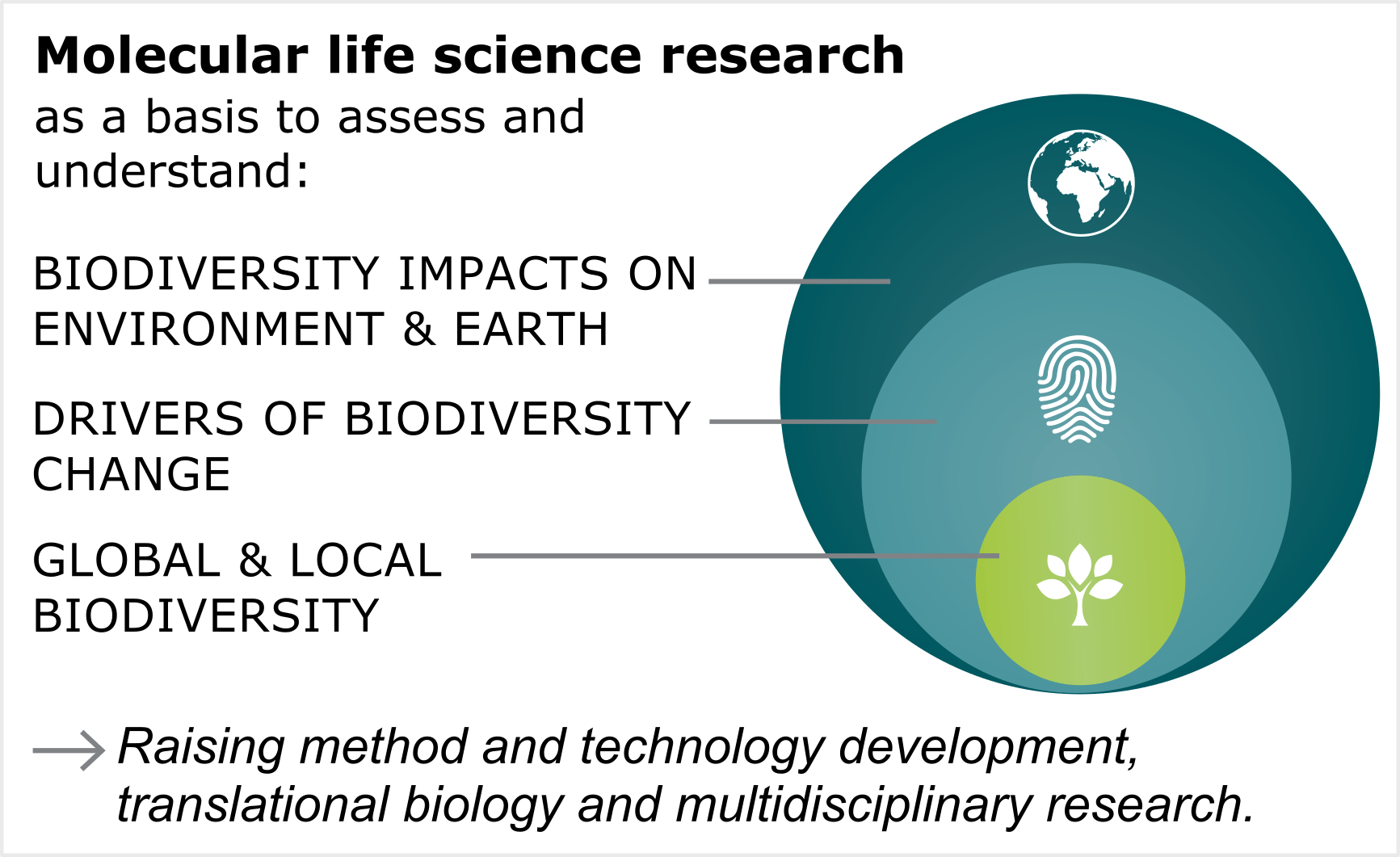
SciLifeLab Planetary Biology Capability Survey
The Planetary Biology Capability Survey was launched in June 2023 and aimed to identify the technology-related needs of the Planetary Biology community in Sweden. This involves pinpointing obstacles hindering the use of existing SciLifeLab platforms, areas where enhancements could boost the Planetary Biology community’s access to these platforms, or the need to create new tools, protocols, or services to be offered by SciLifeLab.
Importance of biodiversity monitoring
Planetary Biology in Almedalen 2023
Nya verktyg för att säkra biologisk mångfald i en föränderlig värld – vilken väg ska Sverige välja?
Jorden genomgår en biodiversitetskris. För att sätta in verksamma motåtgärder behöver vi en effektivare övervakning av biologisk mångfald än observationsstudier. En lösning är att göra DNA-analyser av miljöprover för att få information om arters närvaro och variation. Kan det vara vägen framåt?

DNA-analyser kan säkra biologisk mångfald
Interview with Olga Vinnere Pettersson
Reflections on the Seminar in Almedalen 2023
SciLifeLab Science Summit 2023, Genomics of Biodiversity and Evolution
September 20, 09:00 – 17:00
In an era characterized by extinction and habitat loss, it is crucial to explore biological diversity on our planet and understand the evolutionary processes that generate it. Genome sequencing has generated numerous insights into how species form and how they adapt to their environments, which is vital to understand in a changing world. As sequencing technologies improve and become less expensive, it becomes feasible to produce high-quality genome assemblies and analyze genetic diversity in a huge number of species, which has led to a number of ambitious projects, including the proposed Earth BioGenome Project to sequence all known Eukaryotes. Swedish scientists and SciLifeLab are at the forefront of this field, with genome projects including the pine tree, herring, Arctic fox, and 200 mammals, advancing knowledge of topics including population genetics, adaptation, speciation, convergent evolution, and functional constraint.
In this SciLifeLab Summit, we have gathered several leading researchers, who use genomics to learn about the diversity of life!
Scientific Committee
Kerstin Lindblad-Toh, Leif Andersson, Matt Webster, Love Dalén.
Operations office project leader: Erika Bergqvist Erkstam
SciLifeLab join European effort to map and conserve biodiversity
News, September 29 2022
A collection of top European scientists are planning to use DNA data to tackle the ongoing biodiversity crisis. As Biodiversity Genomics Europe (BGE) partners, SciLifeLab and Uppsala University researchers will participate in a large EU-funded project that involves using genomic methods to study the human impact on biodiversity.

Workshop Heidelberg May 2022
The Planetary Biology capability kicked off with a joint SciLifeLab/EMBL workshop on the 16 and 17th of May 2022 in Heidelberg.
The workshop included talks on a broad set of themes including:
*Biodiversity genomics and reference genome sequencing
*Ecology and evolution
*Biogeochemistry & ecosystems
*Data driven planetary biology
Interview
Scientific leads for the SciLifeLab Planetary Biology capability appointed

“We hope to bridge the gap between researchers working in different disciplines: conservation, population genetics, taxonomy, evolution, metagenomics, biogeochemistry, and so on, to create a strong environment for studying ecosystems as a whole” says Olga Vinnere Pettersson
“This entails more extensive and efficient use of the full portfolio of molecular biosciences methods and infrastructure for planetary biology, with the ambition of providing deep and mechanistic understanding of how different populations, communities and ecosystems function and interact with each other and the earth system” says Stefan Bertilsson.
Olga Vinnere Petterson and Stefan Bertilsson
Contact persons
Scientific Leads for SciLifeLab Planetary Biology are Olga Vinnere Petterson and Stefan Bertilsson.
Assigned Scientific co-Leads are Anders Andersson, Nathaniel Street, and Jacob Höglund. The coordinator for the Planetary Biology is Anabella Aguilera. Please reach out with any questions or research collaboration inquiries.
